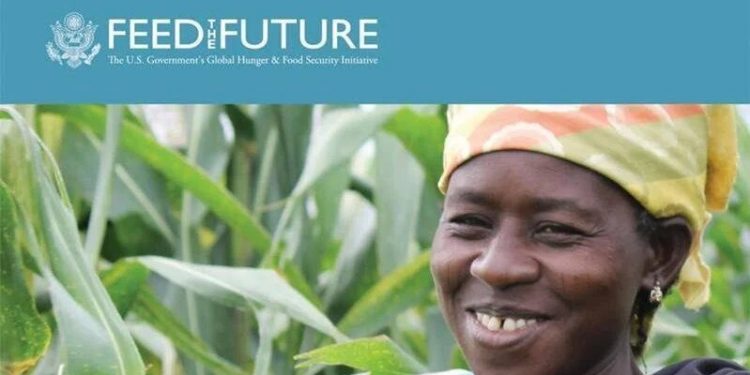The Feed the Future Agricultural Extension and Advisory Services project, a $16.8 million USAID initiative funded in partnership with PIND, has supported 2,021,468 farmers with agricultural inputs and services to boost productivity across Nigeria. Now in its fourth year, this five-year project collaborates with Micro, Small, and Medium Enterprises (MSMEs) to advance innovative agricultural extension services for smallholder farmers, focusing on key crops including maize, rice, cowpea, soybean, and aquaculture.
Targeting 2 million smallholder farmers in states like Benue, Cross River, Delta, Ebonyi, Kaduna, Kebbi, and Niger, the project has introduced 39 impactful practices (MIPs) to enhance crop productivity. Working with 311 MSMEs, USAID has empowered these small enterprises to deliver cutting-edge farming techniques and extension messaging, transforming the farming landscape by enabling farmers to increase yields and incomes by 100%.
Approximately 70% of the practices promoted are climate-smart, equipping farmers with tools to combat climate change and enhance resilience. To meet the increased demand for services, MSMEs have created 1,088 jobs, mainly for young people. Jean Pierre-Rousseau, project director at Winrock International, highlighted, “These MSMEs act as change agents, delivering innovative solutions that are vital for Nigeria’s food security.”
According to Rousseau, the success of the Feed the Future project signals a sustainable path forward for agricultural extension in Nigeria, calling for a national rollout. “Farmers are essential to Nigeria’s food security vision, and the USAID Feed the Future project aims to partner with the Federal Ministry of Agriculture to achieve this goal.”
The project’s collaborative model has brought together stakeholders from government, the private sector, and research communities to discuss scaling these successes nationwide. Deola Lordbanjour, director of the Federal Department of Agricultural Extension, underscored the importance of these efforts, adding that the project has revived agricultural extension in Nigeria, filling a long-standing gap left by the World Bank’s past support.
As the program enters its final year, the USAID Feed the Future team is hopeful that this collaborative approach, combined with private sector ingenuity, will establish a robust, sustainable agricultural extension model that strengthens food security across Nigeria.










